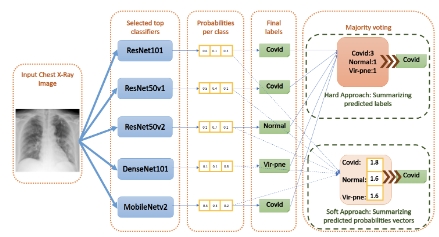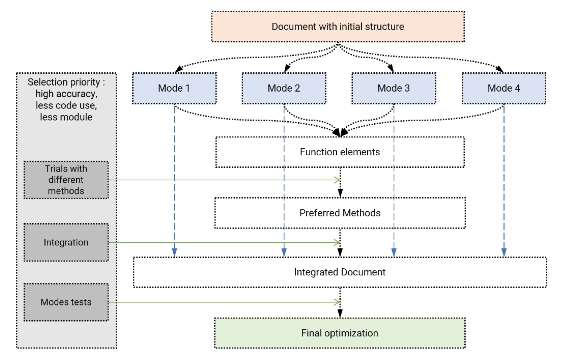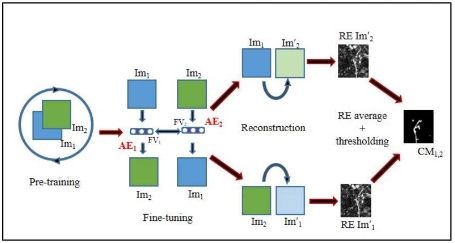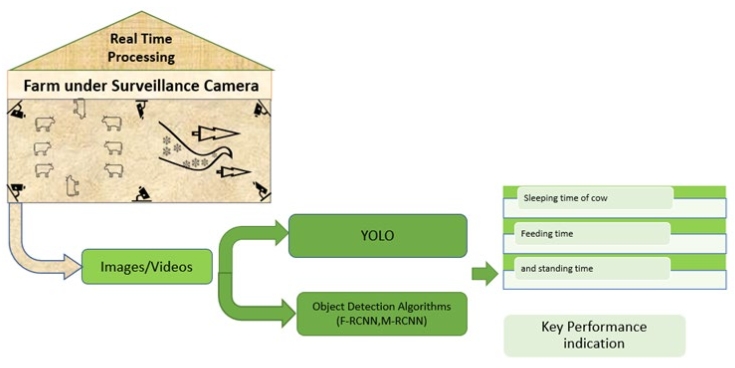The AI spectrum under the doctrine of necessity: Towards the flexibility of the future legal praxis
Abstract
Society is rapidly changing into an implicitus one. The main factor leading to this societal transition is the integration of artificial intelligence (AI), influencing all aspects of anthropocentric legal order. The deep concern to safeguard fundamental human rights under unforeseeable circumstances threatening hypostasis, leads those who are involved in the legal praxis to reorganize the legal system to ensure its functional continuity. To this purpose, a reliable extra-legal tool, such as the doctrine of necessity, is proposed, to validate the issue of AI development that falls outside the purview of any legal process, though, being necessary for society prosperity.
References
[1]Ruiz-Real JL, Uribe-Toril J, Torres JA, et al. Artificial intelligence in business and economics research: trends and future. Journal of Business Economics and Management. 2020; 22(1): 98-117. doi: 10.3846/jbem.2020.13641
[2]Khan ZF, Alotaibi SR. Applications of Artificial Intelligence and Big Data Analytics in m-Health: A Healthcare System Perspective. Journal of Healthcare Engineering. 2020; 2020: 1-15. doi: 10.1155/2020/8894694
[3]Sharma A, Georgi M, Tregubenko M, et al. Enabling smart agriculture by implementing artificial intelligence and embedded sensing. Computers & Industrial Engineering. 2022; 165. doi: 10.1016/j.icie.2022.107936
[4]Simmler M, Canova G, Schedler K. Smart criminal justice: Phenomena and normative requirements. International Review of Administrative Sciences. 2021; 89(2): 415-432. doi: 10.1177/00208523211039740
[5]Boute RN, Gijsbrechts J, Van Mieghem, JA. Digital lean operations: Smart automation and artificial intelligence in financial services. In: Innovative Technology at the Interface of Finance and Operations. Springer, Cham; 2022. pp. 175-188.
[6]Wanes SRAO. Artificial intelligence role for advertising campaigns development. International Journal of Artificial Intelligence and Emerging Technology. 2021; 4(1): 1-16.
[7]Xu L. Artificial intelligence for general layout and transportation engineering with GIS technology. In: International Conference on Big Data Analytics for Cyber-Physical-Systems. Springer, Singapore; 2021. pp. 927-934.
[8]Yang SJH, Ogata H, Matsui T, et al. Human-centered artificial intelligence in education: Seeing the invisible through the visible. Computers and Education: Artificial Intelligence. 2021; 2: 100008. doi: 10.1016/j.caeai.2021.100008
[9]Molano JC, Molano JCC. Criticalities and advantages of the use of artificial intelligence in research. In: Handbook of Research on Advanced Research Methodologies for a Digital Society. IGI Global; 2022. pp. 161-175.
[10]Stahl BC, Rodrigues R, Santiago N, et al. A European Agency for Artificial Intelligence: Protecting fundamental rights and ethical values. Computer Law & Security Review. 2022; 45: 105661. doi: 10.1016/j.clsr.2022.105661
[11]Adamson P. Making a Virtue of Necessity: Anangkê in Plato and Plotinus. Études platoniciennes. 2011; (8): 9-30. doi: 10.4000/etudesplatoniciennes.442
[12]Commisso VJ. Dynamic politics: Necessity founding, and (re)founding in Machiavelli’s Discourses on Livy [PhD thesis]. State University of New York at Albany; 2016.
[13]Tanzi A. State of necessity. Oxford Public International Law. 2021.
[14]Dixon F. Global system change: A Whole System Approach to Societal Transformation. Cadmus. 2021; 4(5): 147-154.
[15]Sweetman B. Evolution, chance and necessity in the Universe. Revista Portuguesa de Filosofia. 2010; 66(4): 897-910.
[16]Leech J. Kant on the Necessity of Necessity. History of Philosophy & Logical Analysis. 2021; 25(1): 66-94. doi: 10.30965/26664275-02400005
[17]Bray C. The philosophy of necessity or natural law as applicable to moral mental and social science. Kessinger Publishing; 2007.
[18]Xie VC, Pu J, Metzger BP, et al. Contingency and chance erase necessity in the experimental evolution of ancestral proteins. eLife. 2021; 10. doi: 10.7554/elife.67336
[19]Rother S. Global migration governance from below in times of covid-19 and “zoomification”: civil society in “invited” and “invented” spaces”. Comparative Migration Studies. 2022; 10(1). doi: 10.1186/s40878-021-00275-9
[20]Vadi V. International law and its histories: Methodological risks and opportunities. Harvard International Law Journal. 58(2): 311-352.
[21]Wong BBM, Candolin U. Behavioral responses to changing environments. Behavioral Ecology. 2014; 26(3): 665-673. doi: 10.1093/beheco/aru183
[22]Ruhl JB, Katz DM, Bommarito MJ. Harnessing legal complexity. Science. 2017; 355(6332): 1377-1378. doi: 10.1126/scienceaag3013
[23]Lee B, Lee KM, Yang JS. Network structure reveals patterns of legal complexity in human society: The case of the Constitutional legal network. PLoS ONE. 2019; 14(1). doi: 10.1371/journal.pone.o29844
[24]Clegg M, Ellena K, Ennis D, et al. The hierarchy of laws: Understanding and implementing the legal frameworks that govern elections. International Foundation for Electoral Systems. 2016.
[25]Kolb R. General principles of law, jus cogens and the unity of the international legal order. In: General Principles and the Coherence of International Law. 2019. pp. 60-64.
[26]Green JA. Self-preservation. Max Planck Encyclopedia of Public International Law (MPEPIL). 2009.
[27]Silkenat JR, Hickey JE, Barenboim PD, et al. The Legal Doctrines of the Rule of Law and the Legal State (Rechtsstaat). Springer International Publishing; 2014. doi: 10.1007/978-3-319-05585-5
[28]Draft articles on Responsibility of States for International Wrongful Acts, with commentaries. Yearbook of the International Law Commission.
[29]Hayashi N. Military necessity: The art, morality and law of war. Cambridge University Press; 2020.
[30]Mark W, Weidemaier C, Gulati M. Necessity and the covid-19 pandemic. Capital Markets Law Journal. 2020; 15(3): 277-283. doi: 10.1093/cmlj/kmaa013
[31]Cervantes S, López S, Cervantes JA. Toward ethical cognitive architectures for the development of artificial moral agents. Cognitive Systems Research. 2020; 64: 117-125. doi: 10.1016/j.cogsys.2020.08.010
[32]Kassens-Noor E, Siegel J, Decaminada T. Choosing Ethics Over Morals: A Possible Determinant to Embracing Artificial Intelligence in Future Urban Mobility. Frontiers in Sustainable Cities. 2021; 3. doi: 10.3389/frsc.2021.723475
[33]Pickel A. Rethinking systems theory: A programmatic introduction. Philosophy of the Social Sciences. 2007; 37(4): 391-407. doi: 10.1177/0048393107307809
[34]Sushil P. Theory of flexible systems management. In: Sushil P, Connell J, Burger J (editors). Flexible Work Organizations. Flexible Systems Management. Springer; 2016.
[35]Roosevelt K. Certainty versus flexibility in the conflict of laws. In: Ferrari F, Fernandez Arroyo DP (editors). Private International Law: Contemporary Challenges and Continuity Relevance. 2019.
Copyright (c) 2024 Lambrini Seremeti, Ioannis Kougias

This work is licensed under a Creative Commons Attribution 4.0 International License.










